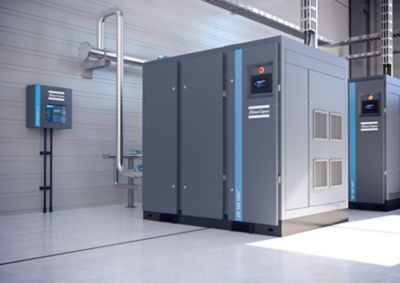June 26, 2024
The importance of oil-water separators
Estimated reading time: 5 minutes
Oil-water separators are a requirement, not an option
Separating oil and water is not only the right thing to do but, in many places, it’s the law: Lots of countries have put in place stringent regulations – including costly penalties – to ensure that oil and water are kept separate to keep the oil from entering the water cycle. As is often the case, however, these rules are not uniform, meaning that some jurisdictions consider a certain trace amount of oil in water safe, while others will treat it as a violation of environmental standards.
In addition, it is more likely that these regulations will be tightened than relaxed, so businesses merely doing the bare minimum now will have to spend more later.
Therefore, it makes sense to invest in proper oil-water separators now, such as Atlas Copco’s OSS. They offer an affordable absorption-based condensate management for smaller oil-injected piston or rotary screw compressors (below 30 l/s or 60 cfm).
Watch this video to know - How does OSS work?
The operating principle of oil-water separation technology
Here is how an oil-water separator works: The condensate enters the OSS via an inlet connection and is fed into the separator. In a pre-filtration step, the condensate, which still contains oil and water, seeps through polypropylene-based filter media, which absorb and capture only the oil. Then, in the post-filtration stage, advanced new filter media absorb the remaining oil.
The result: Clean condensate exits from the outlet with almost no residual oil content and can be safely discarded into the sewage drain. The process is so effective that it removes oil traces to concentrations below 15 ppm.
That is usually well below the level for safe sewage disposal that is defined in various international and local guidelines and standards, which means that you will likely be able to continue using the OSS even if environmental rules are tightened further.
One oil-water separation system, many benefits
However, the OSS does much more than reliably separating oil from water and then safely disposing of it.
Most importantly, oil-water separators with this technology are an economic solution that saves money by avoiding a costly third-party condensate collection. The OSS, which consists of materials that are 100% recyclable, is easy to install, use and replace. Finally, its compact and lightweight design are optimized for small compressors.
All of these benefits make the OSS not only the right choice for the environment but also for your pocket book.

